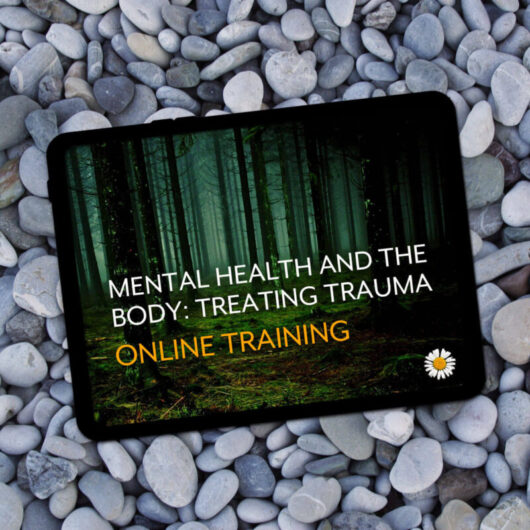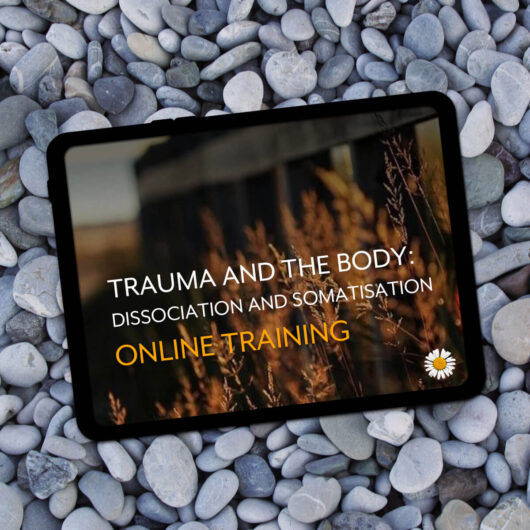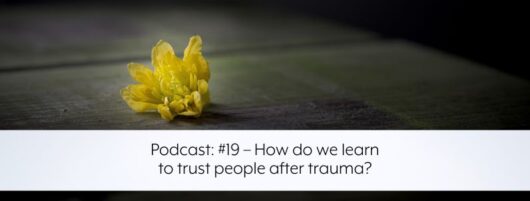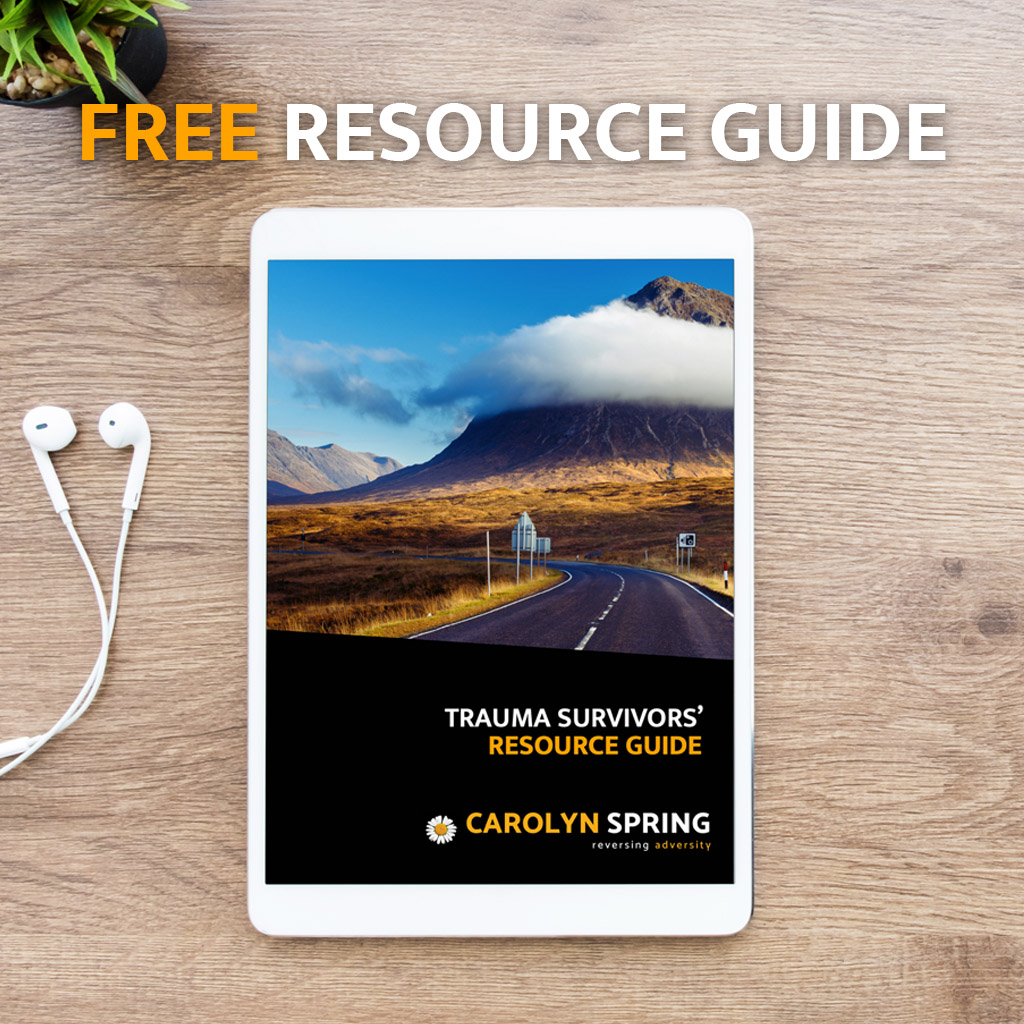
Recovery from trauma
Recovery from trauma is not easy. It’s a long-term process. But that doesn’t mean to say that it’s impossible. First and foremost, we need to understand how trauma has impacted the brain and body.

Recovery from trauma is not easy. It’s a long-term process. But that doesn’t mean to say that it’s impossible. First and foremost, we need to understand how trauma has impacted the brain and body.
Trauma impacts us. It’s supposed to. The impact of chronic, childhood trauma is absolutely devastating. It can affect every aspect of our life.
But we need to understand the function and purpose of traumatic symptoms. We’re not mad. Our brains have not malfunctioned. We are not faulty, and damaged, and beyond hope.
Instead, trauma affects us because it’s in our nature for it to. We react to trauma – what we call being traumatised, or post traumatic stress disorder or even a dissociative disorder – because it’s part of our evolutionary neurobiology: our brains and bodies have adapted to trauma to help us survive it if it happens again. The symptoms of trauma are supposed to help us.
And, yes, our body and brain’s response might mean that we survived – perhaps by the skin of our teeth – but when we’re impacted by trauma, we rarely thrive. That’s because trauma adapts us to a life prepared for danger or threat, not a life of peace and calm and joyful, fulfilling relationships.
Understanding that the symptoms of trauma are our best attempt to survive, however, can help us to realise that, however awful and overwhelming they are, they’re there for a reason – and that reason is NOT a fault in our brain. And that gives me hope for healing. If our brains have adapted to danger, we can also get them re-adapted to safety – a process that we could call ‘recovery’.
I believe in recovery from trauma – not as wishful thinking, or a form of toxic positivity, but because it makes sense. The brain and body are wired to heal – it’s what they are doing all the time. It’s how we survive and manage to live so long. So in recovering from trauma, we’re not actually asking the brain and body to do anything other than what is literally in their DNA to do. We just need to know how to help the process rather than hindering it.
Recovering from trauma isn’t easy; it’s not a single event; and in one sense it’s never over. I prefer instead to talk about it in terms of ‘heading north’ – a general direction of travel rather than a specific destination. I am more recovered from trauma than I used to be. And every day, even if I’m crawling on hands and knees, I’m heading north.
There are many ways to facilitate this recovery journey. A principal one is psychotherapy, but everything that promotes safety and relationship and a calm body and mind also help. To be traumatised means that we live in a constant state of threat, even when that threat isn’t real. To recover from trauma means that we recalibrate our brains and bodies to experiencing safety. What we eat, when we sleep, who our friends are, our engagement with therapy, our protection from abusers, the practice of mindfulness, noticing joy in our surroundings … all of it is part of it.
Browse my resources to explore some of these ideas and to learn how to head north towards a safer, calmer life of post-traumatic peace.
My ‘Mental Health and the Body: Treating Trauma‘ course may be particularly helpful.

Trauma is a supremely physical phenomenon, manifesting not just in our emotions and mental states, but also in our bodies. Trauma results in significant emotional distress and fear-based dysregulation, but also in long-term bodily inflammation and sleep disturbances, which in turn inhibits the processing of traumatic memory. And so it makes sense that our bodies also need to be involved in recovering from trauma: this course shows you how.
Start Learning
Trauma doesn’t just affect the mind and the emotions. It profoundly affects the brain and the body too. Often ‘the body remembers’ what the mind cannot, manifesting not just in long-term psychological difficulties but in physical ones too. Trauma is not something ‘all in the mind’, or something that we can just think or talk ourselves out of. On this course I look at how there is no real split between ‘body’ and ‘mind’ – and certainly not when it comes to trauma.
Start Learning
Therapy can be, and often is, transformational. But why? I benefitted greatly from the empathy and attunement offered by my therapist, but over time I also had to adjust my expectations about how change would occur in me. I had to learn to consider what's really going on when we feel misattuned-to as well. I needed validation and acceptance, but I also needed to be challenged. Here's the story of how that played out in one particular therapy session, and the question that at first offended, and then transformed me.
Listen Now
Trust is so key for smooth human relationships, but it's also invariably damaged after we have suffered trauma, especially abuse. So how do we learn to build it again? In this episode I talk about how there aren't 'three top tips', but how it's a meticulous process of firstly learning to trust ourselves, to tune into our internal radar, and then to bring our front brain online to assess the data we're presented with – especially when we say 'no' to people.
Listen Now
Trauma teaches us that we are helpless to act in the face of danger. But recovery from trauma involves learning to act, learning to take steps, learning to start to find and create the solutions. In this podcast, I talk about the symptoms of trauma and how they drive us towards a solution.
Listen NowGet free Carolyn Spring Trauma Resources when you join my mailing list.
Get free Carolyn Spring Trauma Resources when you join my mailing list.
